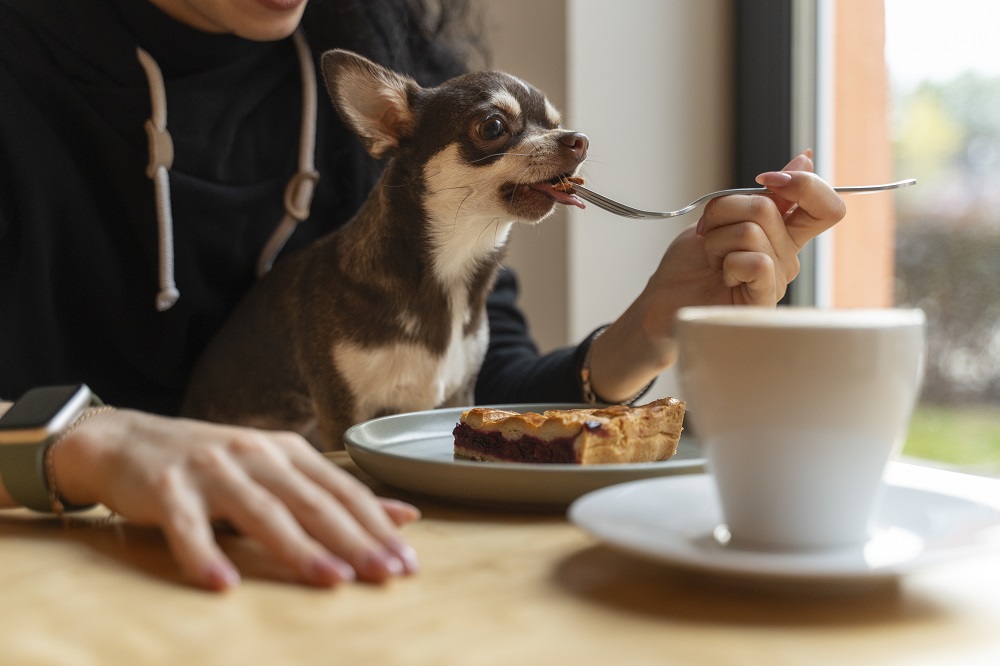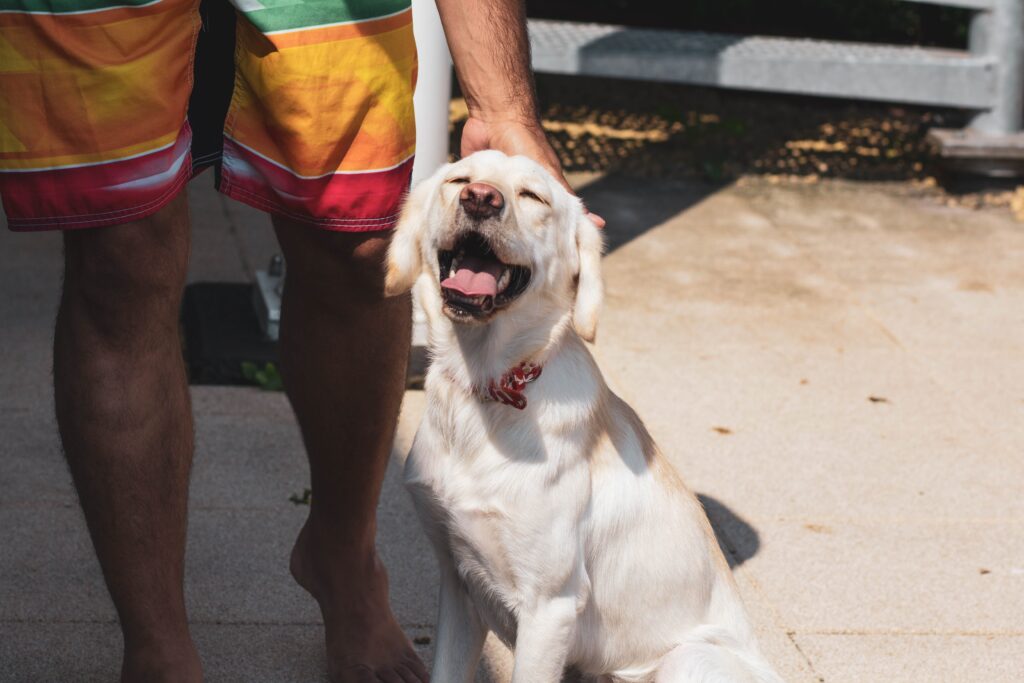Renowned for their diminutive size, Chihuahuas boast a remarkably large personality. Categorized as a toy breed, these tiny canines exude confidence and attitude. Surprisingly, they often stand their ground even when faced with dogs much larger in size. Known for their intense loyalty, protectiveness, and sweetness towards their loved ones, Chihuahuas have earned a well-deserved reputation.

While Chihuahuas may not be suitable for everyone due to their spirited nature, they can prove to be excellent companions. If you’re seeking a compact bundle of affection, the Chihuahua might just be the perfect canine companion for you.
Breed Overview
- Height: 5–8 inches
- Weight: <6 lbs
- Lifespan: 14–16 years
- Breed Size: Small
- Colors: Black, brown, cream, fawn, and red
- Good With: Friendly with other pets if trained and size appropriate
- Temperament: Sweet, bold, often attach to a single family member
Alternative name
Also Referred to As: Chi, Chi-chi, Chi-ken Nugget, Mr. Big, Hell-raiser, Ankle-biter, and Often Described as “That’s the Biggest Little Dog I’ve Ever Seen!”
Table of Contents
The History Of The Chihuahua
Chihuahuas hold a prestigious position as one of the oldest dog breeds globally, with their roots tracing back to Chihuahua, the largest state in Mexico and the country’s national symbol. The introduction of these pups to American tourists began in the late 1800s when the exchanges took place near the Texas border. It was during this period that the dog acquired the name of its place of origin, the state of Chihuahua.
There is speculation that Chihuahuas are descendants of the ancient Techichi dog. These slender companion dogs were present in pre-Columbian Mesoamerican civilizations, and archaeological findings, such as figurines, depict their resemblance to the contemporary Chihuahua, highlighting a possible ancestral connection.
In the later period of the Mayans (1800 BC to 900 AD), these canines, weighing between 10 to 20 pounds, were frequently discovered buried alongside their human counterparts. Despite the Aztecs’ seemingly stern reputation in the 1200s BC, they had a fondness for diminutive dogs. Consequently, they engaged in selective breeding of the Techichi, ultimately giving rise to the modern pocket-sized Chihuahuas.
Historical perspectives on Chihuahua origins vary, with some historians suggesting a crossbreeding of Techichi dogs with Chinese Crested dogs, typically weighing around 10 pounds. Contrarily, others propose European descent. However, recent DNA evidence lends support to the theory that Chihuahuas are exclusively the descendants of ancient Mexican dogs. Despite the debate over their ancestry, these diminutive companions have become widespread around the globe and are cherished as companions today.
Chihuahua’s seize
Chihuahuas typically stand between 5 to 8 inches in height and generally weigh no more than six pounds.
Length of life
Chihuahuas stand out as one of the longest-living dog breeds, with an average life expectancy ranging from 14 to 16 years.
The disposition and character traits of Chihuahuas
Chihuahuas, often overlooked for their gentle dispositions, deserve more recognition. The breed gained popularity in the early 1900s, owing in part to their sweet nature and deep affection for their human companions. However, their remarkable “big dog” personalities also attract considerable attention for obvious reasons. These clever dogs have the potential to take charge of your home and neighborhood in the absence of strong leadership.
They are recognized for their intense devotion to just one or two individuals within their families. While they may not easily befriend everyone they encounter, they are often characterized by their fun-loving and entertaining nature. Additionally, Chihuahuas excel as effective alarm systems.
are chihuahuas noisy?
Chihuahuas are prone to vocalizing at any possible intruder, whether it’s the mailman, the neighbor’s cat, or a passing squirrel. When you’re as small as they are, making a big impression becomes a necessity!
Do Chihuahuas Have High Energy Levels?
The exercise needs of Chihuahuas vary based on the athleticism and physical condition of each dog. Some may find a leisurely daily trot to the park beneficial, while others might prefer two short and brisk walks per day. Many Chihuahuas take pleasure in activities such as running, playing, and chasing toys within a small, enclosed space.
However, it’s crucial to be mindful of the risk of overexertion with this breed. If a Chihuahua begins to pant, lies down, or struggles to keep up, it’s a clear sign that it’s time to pick her up and carry her home to prevent any potential strain or fatigue.
Are Chihuahuas Good with Kids, Cats, and Other Dogs?
One of the delightful aspects of living with a Chihuahua is observing their confident prancing around the room, warmly greeting familiar individuals. While they tend to be cautious or even standoffish with strangers on the street, Chihuahuas can be socialized to be more accepting.
Due to their delicate nature, Chihuahuas may not tolerate rough play, especially from young children (although no dog should endure roughhousing). They might exhibit growling, snapping, or biting behaviors when they feel threatened by kids. Given their susceptibility to injury due to their small size, it is advisable to have Chihuahuas in the company of older, well-behaved children.
Nevertheless, around responsible and calm kids, Chihuahuas can make wonderful companions. They often enjoy activities like playing fetch, cuddling on the couch, and going for a leisurely stroll around the block. Just be mindful of your steps when sharing a home with them!
While some Chihuahuas may become over-sheltered, leading to issues like low self-esteem or fear, they generally exhibit friendliness towards other dogs and cats. However, low confidence, overprotectiveness, and dominance can manifest as reactivity. Like all dogs, Chihuahuas require proper socialization and training before venturing to the dog park or cohabitating with a cat.
Ensuring the safety of Chihuahuas around other animals is crucial at all times. Extra small or timid Chihuahuas are particularly susceptible to potential attacks, emphasizing the need for vigilance and precaution.
Be Mindful of Their Size
Considering the Chihuahua’s exceptionally small size, it is crucial to be aware of the risks posed by adverse weather conditions and potential predators. During winter, special care should be taken as Chihuahuas have thin coats and low body fat, making them susceptible to the cold.
Additionally, these petite dogs are vulnerable to wildlife, especially in areas with birds of prey, coyotes, or raccoons. It is advisable to always keep your Chihuahua on a leash next to you and never leave them unattended in a yard.
Are Chihuahuas Hard to Train?
Despite their small size, Chihuahuas are alert, vivacious, and highly trainable. Despite their potentially intimidating demeanor, they are often eager to please their human companions. Positive and clear training practices can lead to quick learning of various tasks and behaviors. They may also excel in obedience classes, provided they are not overwhelmed by much larger, over-excited dogs.
Chihuahuas require a strong leader, and it’s important to start training when they are still puppies. All dogs, including Chihuahuas, deserve to be well-socialized and trained to coexist peacefully with others. Without proper direction and guidance, Chihuahuas may attempt to assert dominance and control in the household.
Do Chihuahuas Have Any Health Issues?
Generally healthy, Chihuahuas have faced some medical problems over the years due to continuous breeding for smaller sizes. When acquiring a Chihuahua from a reputable breeder, it’s crucial to screen for common health issues such as heart problems, eye disease, patellar luxation, and epilepsy.
Given their small size, pay particular attention to treats as the calorie intake can accumulate rapidly. Chihuahuas are more prone to obesity due to their pint-sized proportions. Alongside regular daily exercise, they should be provided with a high-quality, balanced diet, with treats accounting for no more than 10% of their daily caloric intake.
Dental Care and Health Risks:
Chihuahuas are at an elevated risk of dental disease due to their small mouths, leading to crowded teeth compared to larger breeds. Regular teeth-brushings and annual professional dental cleanings are essential to prevent mouth infections. Advanced dental disease can potentially lead to infections spreading to the heart and other bodily systems.
Caution Regarding “Teacup” Terminology:
When selecting a responsible breeder, it’s important to be cautious about terms like “teacup” or “miniature,” as these often indicate Chihuahuas bred down to be smaller, disregarding associated health issues. As these variations are not officially recognized by dog breed organizations, breeders might be charging more for essentially the same type of dog. The only recognized differences in Chihuahuas are variations in coat type (smooth-coat or long-haired) and head shape (“deer head” or the rounded “apple head”).
Grooming Needs:
Chihuahuas come in two coat varieties: smooth-coat and long-haired. Smooth-coat Chihuahuas require minimal brushing, while long-haired ones need more maintenance. Regular brushing (at least once a week) helps prevent mats and tangles, particularly for long-haired Chihuahuas.
While Chihuahuas generally keep themselves clean, occasional baths contribute to maintaining their appearance and overall hygiene.
Cost of Caring for a Chihuahua:
Determining the exact cost is challenging, but at a minimum, anticipate spending around $500 or more per year.
Food:
Apart from the initial cost of acquiring the dog, Chihuahuas, being small to medium-sized dogs, consume approximately 1/2–1+ cups of food per day. A quality bag of food typically ranges from $20 to $60 or more per bag, lasting for a few weeks to a month, depending on their consumption.
Routine Vet Care for a Healthy Dog:
Consider the expenses associated with maintaining proper veterinary care. On average, a veterinary appointment will cost a minimum of $50 per visit, excluding treatment costs such as vaccines, heartworm tests, and other necessary procedures. Vets often advise a yearly wellness visit, and additional treatment for unexpected issues may arise along the way, including x-rays, antibiotics, or surgeries.
Preventative Medications:
Monthly heartworm, flea, and tick medications typically incur a cost of $100 or more for a year’s supply, varying based on your pup’s weight.
Grooming:
Grooming costs for a Chihuahua are relatively low if done at home. You’ll need dog-friendly shampoo, a coat-specific brush, tooth-brushing supplies, toenail clippers, and an ear-cleaning solution with cotton balls at a minimum. Opting for a professional groomer may result in a single session costing approximately $25–$40.
Toys, Treats, Beds, & Accessories:
While toys, treats, beds, and accessories (leash, collar, bowls, training tools) contribute to overall expenses, they are undoubtedly the most enjoyable items to shop for! Costs in this category will vary based on personal preferences and your Chihuahua’s specific needs.
Related Article: ULTIMATE GUIDE: CARING FOR YOUR LABRADOR RETRIEVER – A COMPREHENSIVE APPROACH TO GROOM
you can visite our facebook , instagram, pinetrest
